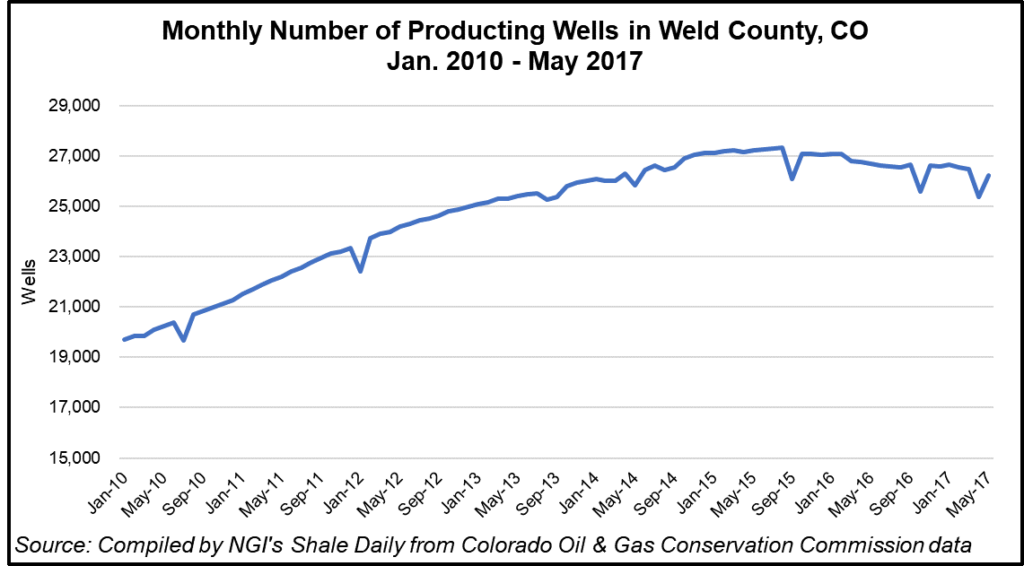Regulatory | E&P | NGI All News Access | NGI The Weekly Gas Market Report
Colorado Governor Calls for Overhauling Oil, NatGas Rules
In the aftermath of a deadly flowline explosion in Firestone last April, Colorado Gov. John Hickenlooper on Tuesday proposed a series of regulatory and legislative changes for oil and natural gas operations in the state.

Industry representatives drew short of endorsing the proposals, but they also pledged to stay active in discussing them with the governor and other state officials.
After completing a three-month review, Hickenlooper called for broad-based changes to be taken in the next year, including more stringent flowline regulations, steps to address orphan wells and enhanced methane leak detection. The changes would be implemented by the Colorado Oil and Gas Conservation Commission (COGCC) or done through a legislative process.
The proposals are “responsible and appropriate” to prevent another Firestone tragedy, which killed two men and injured one man’s wife, Hickenlooper said. The recommendations follow an accelerated review by the state and the “timely information” developed by the oil and gas industry.
The policy initiatives proposed, achieved by COGCC rulemakings or the state legislature, are designed to:
Post-Firestone, “we committed to do all we could to ensure that what happened to the Martinez and Irwin families never happens again,” Hickenlooper said of the two families tragically impacted by the flowline explosion in Weld County.
A preliminary investigation determined that the abandoned and severed unrefined natural gas flowline, which ran about 170 feet from a nearby Anadarko Petroleum Corp. well to the foundation of the Martinez home, had not been capped.
Days before the tragedy, COGCC had released a draft audit report highlighting that corrosion, pipe failure and natural force damages accounted for more than nine of 10 leaks from the state’s production well flowlines.
“Colorado’s oil and gas industry just completed a rigorous safety examination and reporting process in full cooperation with the COGCC following the tragedy in Firestone, CO,” said Dan Haley, CEO of the Colorado Oil and Gas Association (COGA), in response to Hickenlooper’s recommendations. The industry plans to review the details of the proposal “and will fully engage in conversations about next steps.”
Hickenlooper also announced that the state Department of Public Health and Environment (DPHE) is forging an alliance with the U.S. Occupational Safety and Health Administration, the National Institute for Occupational Safety and Health and COGA to develop best practices on workforce health/safety in the oil and gas sector. Colorado received federal grant money to evaluate and address industry worker safety, according to DPHE Executive Director Larry Wolk.
Beginning in September, representatives plan to meet monthly to “share information, determine the status of ongoing activities, and evaluate results,” Wolk said.
© 2024 Natural Gas Intelligence. All rights reserved.
ISSN © 2577-9877 | ISSN © 1532-1266 | ISSN © 2158-8023 |
